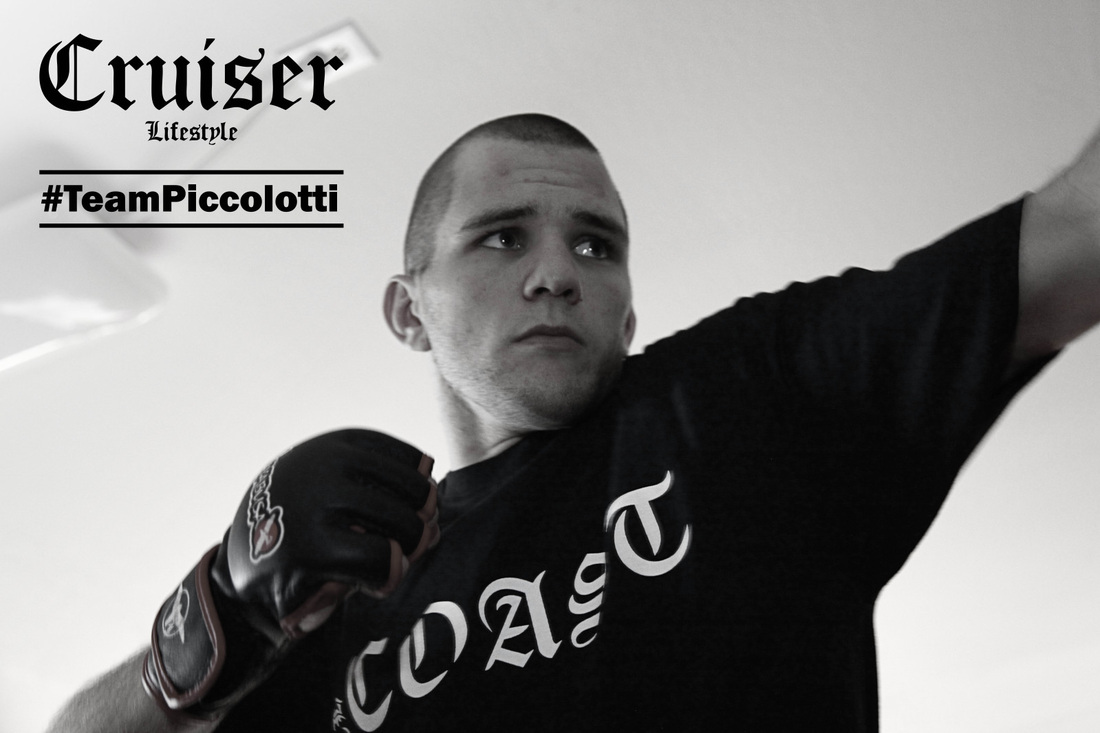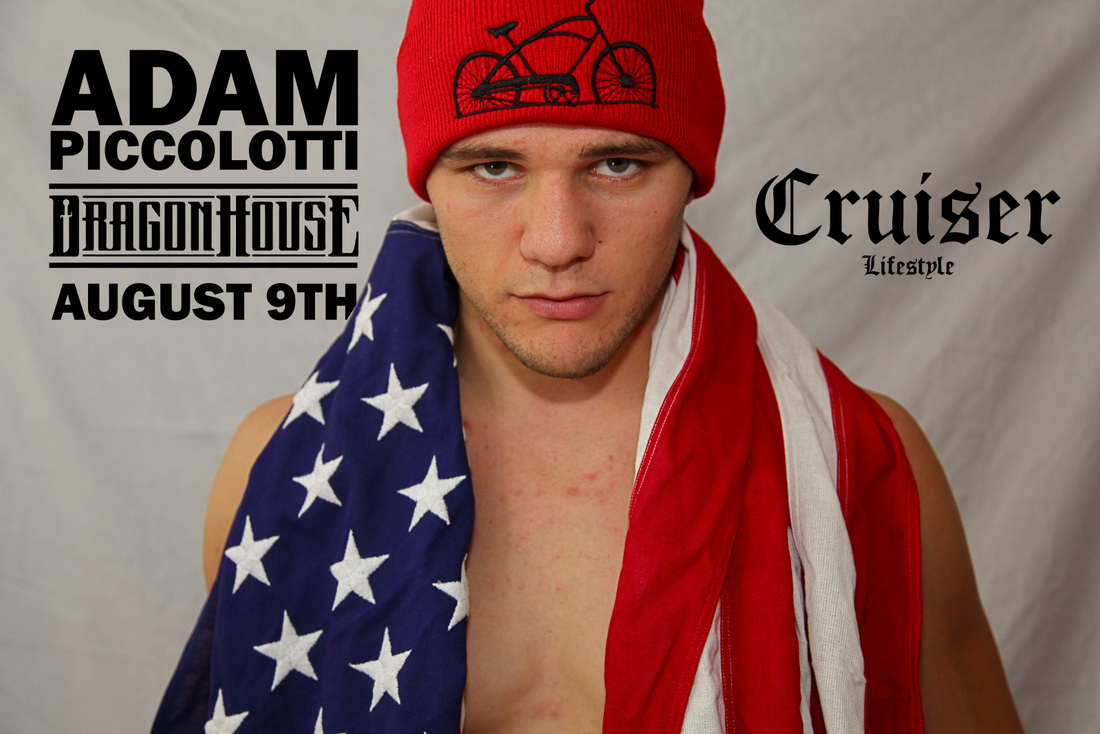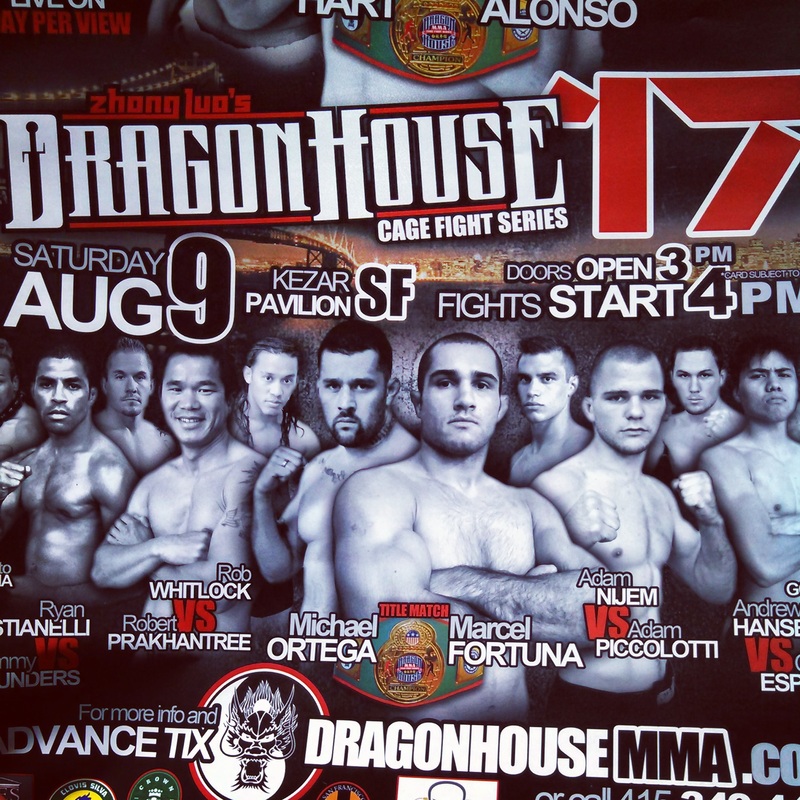|
Adam Piccolotti fighting in Dragon House 17. Born and raised on the Half Moon Bay Coast California going for his 3rd professional cage fight victory. With an undefeated amateur record. Fighting for Raul Castillo Martial Arts in Half Moon Bay and Team Piccolotti. Sponsored by Cruiser Lifestyle Clothing Company out of Half Moon Bay Ca. Aug. 9th at Kezar Pavillion in San Francisco (@Haight St./Golden Gate Park). Doors open at 3pm fights start at 4pm. 15 Professional fights including 2 title bouts and a women's flyweight bout. Buy Tickets here $40 Gen Admission or Buy at Raul Castillo Martial Arts 756 Main St. Half Moon Bay.
 http://www.wallacejnichols.org/122/bluemind.html http://www.cbsnews.com/news/wallace-j-nichols-blue-mind-book-tries-to-prove-the-ocean-washes-stress-away/ Can simply being near the ocean wash away stress? A new book sets out to answer some big questions about the brain and bodies of water. "Blue Mind" explores why so many of us are drawn to the ocean, and how this scientifically connects to our health and happiness, CBS News correspondent Ben Tracy reports. Most of us know that feeling of calm we get when we are on, in or just near the water. "This is what you want if you're in the midst of a stressful week," said Wallace J. Nichols, a marine biologist and conservationist who lives near the central coast of California. "You just want to hit that big blue reset button and get out here." Nichols spent much of his professional life trying to protect endangered sea turtles. Now he's exploring the scientific reasons for why humans have such a deep connection with the deep blue. "There are all these cognitive and emotional benefits that we derive every time we spend time by water, in water or under water," Nichols said. The marine biologist dubbed it our "blue mind," the mildly meditative state our brains enter when exposed to water. Initially, Nichols was apprehensive that people would dismiss him as a California beach-lover, but he attests that his thesis is scientifically backed. "Once you get into it, you realize that it's chemistry, it's biology, it's physiology. It's deeply personal but it's also strong science," Nichols said. The science is still evolving, but Nichol's work is getting plenty of attention. He began hosting "blue mind" seminars that are attracting neurologists and psychologists from around the world. Brain imagining indicates that proximity to water floods the brain with feel-good hormones such as dopamine and oxytocin. Levels of the stress hormone cortisol actually drop. Scientists have also discovered that the brain prefers the color blue above all others and water increases our ability to focus. "Our response to water is deep," Nichols said. "It's human, it's about life and it's about survival." In fact, our bodies consist of about 60 percent water and our brains, a whopping 75 percent. "So when you see water, when you hear water, it triggers a response in your brain that you're in the right place," Nichols said. From rafting to kayaking to surfing, water therapy is increasingly being used to treat a variety of ailments, including wounded veterans suffering from post-traumatic stress and depression. "I think connecting public health to a healthy ocean is critical," Nichols said. "It helps you relax, just literally sucks the stress out of your body and out of your mind." So the next time you gaze into that blue horizon, you'll know that feeling you get really is all in your head. © 2014 CBS Interactive Inc. All Rights Reserved.July 22, 2014, 8:11 AM Khosla slams media, decries Martins Beach 'blackmail'By Aaron Kinney
Article There is no public access to Martin's Beach in Unincorporated San Mateo County, Calif., photographed on Thursday, July 19, 2012. Vinod Khosla, a co-founder of Sun Microsystems and a green venture capitalist, bought the beach land in two lots in 2008 and has closed the public access to the beach. (JOHN GREEN/Staff) MARTINS BEACH -- In his first interview about the coastal access battle at Martins Beach, venture capitalist Vinod Khosla told this newspaper he doesn't intend to back down, blasting news coverage of the controversy and accusing his opponents of "blackmailing" him into giving up his property rights. Khosla spoke hours after his attorneys delivered their closing argument in a closely watched trial over the publics ability to visit the secluded San Mateo County beach. The Surfrider Foundation argues Khosla violated the California Coastal Act by failing to obtain a development permit before permanently locking the gate at the top of his private road off Highway 1. The previous owner had allowed the public to use the road for a fee. Venture capitalist Vinod Khosla arrives at San Mateo County Superior Courthouse Monday afternoon May 12, 2014, in Redwood City, Calif. Khosla was called to testify about his refusal to open public access to a stretch of beach along the San Mateo County coastline. (Karl Mondon/Bay Area News Group) "If the story was right and people thought I was doing something wrong, I'd live with that -- it wouldn't bother me," Khosla said Wednesday night. "But there are massive lies and misrepresentation on the issues here. Surfrider and the Coastal Commission are attempting to coerce and blackmail me." Surfrider attorney Mark Massara responded Thursday, saying Khosla's comments show he is "out of touch." But Khosla said he is making a principled stand in defense of individual property rights against overzealous government agencies. The clean energy investor claimed Surfrider, San Mateo County and the Coastal Commission are trying to shame him into ceding those rights, skewing the balance between private and public interests. "He's put himself in a very unfortunate position," Massara said. "Community concern, legislative initiatives and widespread condemnation are the natural, predictable result of his conduct and strategy." Surfrider sued the high-tech magnate last year in a bid to force him to seek a coastal development permit for closing Martins Beach Road in 2010. Surfrider is also asking San Mateo County Superior Court Judge Barbara Mallach to levy millions of dollars in penalties. Khosla said Wednesday that news reports have repeated myriad falsehoods, particularly regarding changes in access to the beach. He said reporters have overstated the degree to which the previous owners of Martins Beach, the Deeney family, allowed the public to visit. Rich Deeney testifed in May that the family typically opened the beach during the day but closed it during bad winter weather or whenever it wasn't convenient for them. The founder of Khosla Ventures also claimed news reports have failed to note that the popularity of Martins Beach had dropped significantly by the time he purchased it in 2008. Rich Deeney testified the decline in visitors contributed to the family's decision to sell the land, which languished on the market until Khosla bought it for $32.5 million. Smelt fishing, once the biggest draw at the beach, had slowed as the fish became less abundant, Deeney testified. Khosla said he initially allowed the same public access provided by the Deeneys, but the county demanded changes. In a February 2009 letter, the county instructed Khosla's property manager to lower parking prices to $2, since that was the price in 1973 when coastal development laws went into effect, and keep the road open throughout the winter. "We had allowed access on the same basis as historical access," Khosla said Wednesday, "but then the county starting overreaching and demanding much more." That touched off a legal battle that Surfrider attorney Joe Cotchett predicted could eventually rise all the way to the U.S. Supreme Court. The next step, however, is a ruling from Mallach, who will issue her decision in coming weeks. In addition to Khosla's remarks, Martins Beach LLC, which is owned by Khosla and operated by property manager Steve Baugher, issued a blistering four-page statement Wednesday after closing arguments. The statement accused Surfrider of encouraging "mob behavior" and "class warfare" and claimed the Coastal Commission has rebuffed attempts by Khosla's team to discuss the matter of public access. Baugher testifed in May that Coastal Commission staff members told him in a November 2011 meeting that Khosla's team should simply give in because the commission would never grant them a hearing if they applied for a coastal development permit. Nancy Cave, the Coastal Commission's district manager for San Mateo County, disputed that claim Thursday. Cave attended that 2011 meeting, and she remembers it differently. Khosla's attorneys, she said, were unwilling to discuss any solutions to the access problem. "We're waiting for you to take an enforcement action so we can sue you," said Cave. "That was their response to everything we suggested." Khosla testified that he had no specific plans for Martins Beach when he bought it. He said Wednesday that hasn't changed. Just because he isn't allowing public access, he said, doesn't mean he isn't interested in environmental protection. "That's where all my interest in sustainability comes from," he said, "is preserving nature." Contact Aaron Kinney at 650-348-4357. Follow him at Twitter.com/kinneytimes. Drakes Bay oyster farm denied Supreme Court hearing
Article Oyster farmer Kevin Lunny's reaction to what looked to others like the last legal gasp of his operation at Point Reyes National Seashore punched right to the point: "It's not over until the last oyster is shucked." "This is a disappointing decision, but it's not really a setback," Lunny said of the U.S. Supreme Court's refusal Monday to hear an appeal of a federal order that would shut down his Drakes Bay Oyster Co. "This ruling only gives us the strength and incentive to fight harder. This is not just about oyster farmers - this issue affects farmers and ranchers on federal lands throughout the nation." Without comment, the justices left in place court rulings upholding the Interior Department's refusal to renew the lease of Lunny's company, which operates California's only oyster cannery. Lunny and his wife, Nancy, bought the operation in 2004, eight years before the expiration of a 40-year lease in federal waters. Next week, a federal judge in Oakland will review the Supreme Court's refusal to hear his case and consider its effects on the Lunnys' lawsuit challenging the eviction. The courts have allowed the 30-employee company to remain open while it appealed the rulings that have gone against the Lunnys. "It ain't over by a long shot," Kevin Lunny insisted, citing a Marin County judge's ruling last week that blocked a California Coastal Commission shutdown order. 'No' means noEnvironmentalists, who call the oyster operation inappropriate for a wilderness area, said that ruling was superseded by the Supreme Court's refusal to hear his case. "I think he's (Lunny) in denial of reality," said Amy Trainer, executive director of theEnvironmental Action Committee of West Marin. "For all intents and purposes, this round of appeals, where he has consistently been told 'no,' has been a hearing on the merits, and he has lost. At some point he needs to face reality and take 'no' for an answer." A 1976 law set aside 2,500 acres of offshore land, including the oyster farm, as a wilderness area free of commercial activity once the oyster lease expired. The Lunnys' farm produces one-third of all the oysters harvested in California, however, and the grower has lined up supporters including Sen. Dianne Feinstein, D-Calif., and chef Alice Waters. Renewal deniedFeinstein steered a bill through Congress in 2009 that authorized the Interior Department to extend the lease for 10 years. But then-Interior Secretary Ken Salazar denied a renewal of the lease in November 2012, saying the oyster harvesting didn't fit Congress' plan for a wilderness area. Two federal courts have ruled since then that the renewal question was solely up to Salazar and that he made an "informed decision" immune from judicial review. Supporters of the farm challenged the "informed" part by pointing to a conclusion in 2009 by a panel of scientists that the National Park Service made errors and misrepresented facts in its statements that the shellfish operation harmed the area. Sensitive environmentDrakes Estero, the estuary where the oyster farm is located, is home to thousands of endangered birds, a large seal colony, and at least 5 percent of California's coast eelgrass, an important food source for birds and fish. "The decision by the Interior Department was made in the public's interest," said Neal Desai, a director for the National Parks Conservation Association. "Americans deserve to have a protected marine wilderness region, as was long planned and paid for." The Lunnys and their supporters retorted that shutting down a valuable food source in the name of simply keeping a wilderness area open was shortsighted at best. "This case wasn't just about the future of the Drakes Bay Oyster Company," Pacific Legal Foundation attorney Tony Francois said in a statement. "It was about accountability in government and everyone's right to have access to the courts if bureaucrats threaten your livelihood." In seeking Supreme Court review, attorneys for Drakes Bay - who said they are working pro bono - argued that the 2009 law did not give the government unlimited authority over the lease and was actually intended to "extend the lease." The case is Drakes Bay Oyster Co. vs. Jewell, 13-1244. Chronicle staff writer Henry K. Lee contributed to this report. Kevin Fagan is a San Francisco Chronicle staff writer. E-mail: [email protected] |
Categories
All
Archives
November 2021
|




 RSS Feed
RSS Feed